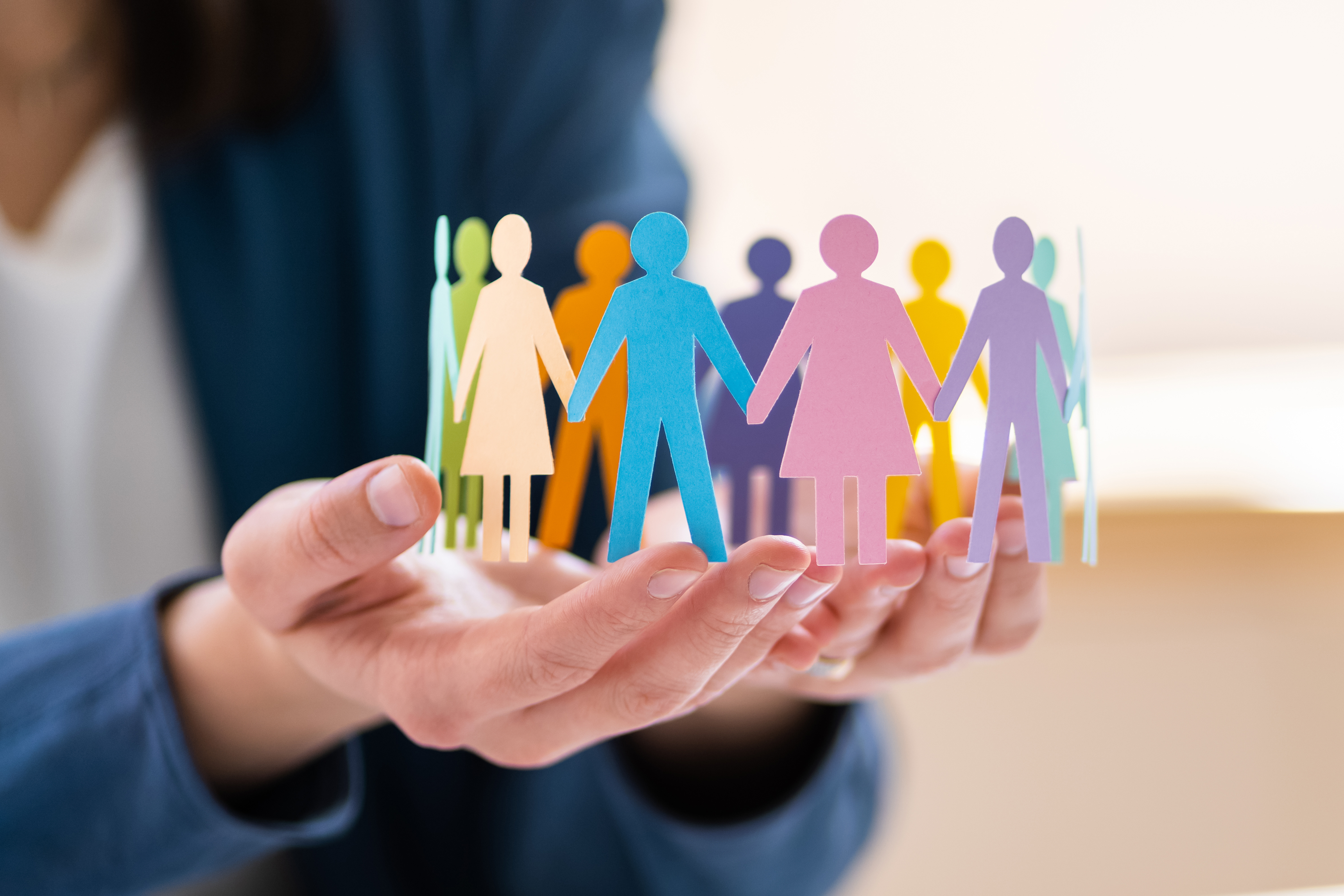
Business loves jargon and is apparently addicted to acronyms. The international trade sector is a particularly heavy user of a wide array of three-, four- and five-letter jumbles.
Amid all this alphabet soup, some stand out as being more important
than others. Equity, diversity and inclusion (EDI), sometimes referred to as DE&I, is one example.
As more businesses recognise the importance of fairness in their organisational culture, they’ve launched initiatives, and measured progress
on, a range of EDI targets.
These include widely discussed issues, such as gender, race, sexuality and disability, and less prominent topics, such as neurodivergence, social background and mental health.
As part of National Inclusion Week, the IOE&IT Daily Update sat down with Hollie Ward, IOE&IT’s HR administrator, and a leading force behind the Institute’s activities in this area, to discuss what the Institute is doing and why it matters.
DU: Can you tell us a little bit about initiatives the Institute has put in place?
HW: We revised our EDI policy in June to include areas such as neurodiversity, reasonable adjustments and other topics we hadn’t covered before.
From this, we pulled together a group of 11 inclusion champions, who meet once a month. We’ve
got a great range of people from across the business, including the leadership team.
They play a vital role embedding an inclusive culture in the organisation, including raising awareness of protected characteristics.
Recently
we worked on equal pay day, disability pride month and carers’ week, and in the future we’ll focus on dyspraxia, dyslexia and black history month.
DU: What else is happening?
HW: We launched a career strategy and
reward framework, which expresses equity within the business and our approach to reward, and we also added a pay progression piece. This provides career development for everybody.
We also try hard to be inclusive when recruiting; we’re
a disability confident employer, which supports this. Our aim is to spread more information on this topic to educate people about our approach.
We’re also a mindful employer, which means supporting employees with mental health conditions.
An ongoing project we’re working on is a review of our internal content styles, including our learning and development programmes. We’re want to use training videos to make them more accessible.
Finally, we run work experience
and placements for graduates, as well as apprenticeships. We believe it’s important to support young people move into work and give them the experience they need to kick-start their careers.
DU: And what about future plans?
HW: We’re
launching new menopause guides to support those experiencing the menopause at work, as well as running neurodiversity training in a few weeks. Neurodiversity is something we want to educate people on, to help make work a better place for neurodivergent
employees.
We’re also launching an inclusive communication guide, which includes inclusive language and highlights things you should and shouldn’t say.
As part of National Inclusion Week, we’ve created an IOE&IT world recipe
book with staff supplying their favourite recipe. Because our team includes members from so many different countries, we hope the book will capture that diversity.
DU: Why does it matter to encourage and promote EDI?
HW: It’s important because we’re an extremely diverse organisation; we have employees from more than 10 countries and our gender split is 52% female and 48% male. We’ve also got four generations within our workplace.
EDI matters because it’s
about belonging, and belonging is key to happiness, connection and value. This is especially important because we spend up to 35% of our life in the workplace.
EDI is also an important business consideration, because inclusive companies
are more engaged, innovative and productive. Research found that they’re also 36% more profitable, because employees are more engaged.
DU: What results has the Institute seen from this activity?
HW: We run regular
staff engagement surveys to receive feedback directly from our teams and then hold focus groups based on them.
We want team members to feel heard and be heard, which means showing what we’re doing in response to that feedback.
This approach is the right thing to do, to help people feel like they belong at work. People should be happy and feel connected and valued. Diversity and inclusion is a really big part of that.
DU: How does this affect IOE&IT members?
HW: As
a business, we care about empowering traders, which is inclusive and accessible in its own way.
How we interact with members really matters, and employees that feel engaged and valued will do so with greater warmth and professionalism.
On top of that, internally we have an ethos of ‘bringing your authentic self to work’ and recognising that people are individuals.
We're always working on continuous improvement internally, which includes a people services strategy
partially focused on EDI. We’re still learning, and we want to keep improving and striving to do better to support the people important to us.
DU: How important is communication in building this culture?
HW: Communication
is very important. Our inclusion champions send weekly awareness posts about their work. New starters will see one soon after joining and hopefully be curious.
That's a key thing; encouraging people to be curious. As soon as they come
in the door, new starters will see that, as an employer, we want them to be aware of different people. We want them to feel like they can be themselves.



